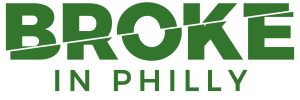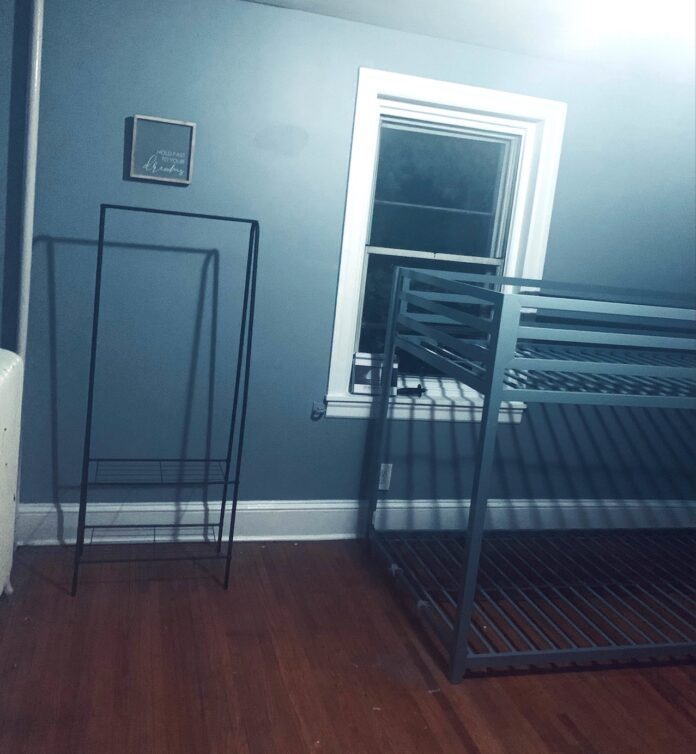If all goes as planned, a new faith-based housing resource for LGBTQ people experiencing homelessness, which will prioritize Black and Brown trans people, especially women, is scheduled to open in North Philadelphia by the end of October.
Co-founded and led by Tatyana Woodard and Bishop Romaine Gibbs, Ark of Safety LGBTQ+ Safe Haven will provide a variety of resources and support services, including a weekly nighttime drop-in for people to come and get a hot meal and a shower, emergency shelter services, and, thanks to a grant from Homeless Assistance Fund Incorporated (HAFI), a two-year rapid rehousing program specifically for trans individuals of color.
“Black and Brown trans [people] are our priority,” Woodard said. “It has been from the start of the vision and it will remain. We know that that is the community most affected by homelessness and housing insecurity.”
The two-year grant will accommodate four individuals the first year and six the following year, offering six months of temporary housing (with flexibility) while the individual transitions to a permanent residence.
“They will be what we’ll call our core cohort,” Woodard said. “They will receive six months of life skills building, financial literacy, budgeting, some job training and hopefully some employment. We’re hoping to raise enough funds to open up the cohort to more people.”
The Safe Haven team also hopes to use the grant to hire a housing coordinator to do low-level case management for that core cohort. The team is currently looking for board members and volunteers as they continue to raise funds to pay support staff, with their main financial goal being to cover operational costs. In addition to HAFI, the Safe Haven management team will also utilize grants from the Transcend Community Impact Fund and Trans Justice Funding Project to help with programming costs. Funding for Social Change is helping with grant acquisition.
They are also running a GoFundMe campaign, the donations from which will be used to purchase items like mattresses, linens, bathroom and cleaning supplies and laptops.
Partnerships with other organizations will also be central to ensure a variety of services are available. Bebashi Transition to Hope and SistaTalkPHL, an organization rooted in empowering Black women and mothers, will partner with Safe Haven to provide self-testing HIV kits and referrals to Bebashi’s prevention navigation services. Plus, Bebashi will administer mentoring and organizational capacity development to both organizations to help with community engagement.
“This partnership is momentous for us,” Sebrina Tate, executive director of Bebashi, said in a press release. “We look forward to expanding our community engagement and HIV education initiatives through these two dedicated community organizations.”
Nhakia Outland, founder and executive director of the organization Prevention Meets Fashion (PMF), will be another of Safe Haven’s partners. She will take referrals for PMF’s gender-affirming clothing closet and will provide some of the organization’s existing programming to the Safe Haven cohort, with more details to be determined. Outland and the PMF team also created a paid internship program geared toward trans and gender nonconforming residents of Safe Haven.
“PMF is so excited to be able to provide some of those supports,” said Outland, who has a background in social work and sexual health education. “Ark of Safety is going to provide the housing, and PMF is going to come and provide that psycho-social support, the mental health support.”
Through her work at PMF, Outland said she’s been seeing a rise in people who need services related to housing and sexual health, which led to the organization’s partnership with the Philadelphia Department of Public Health.
“Specifically, there is a need for housing for Black and Brown trans women to keep them safe, but for overall health and wellness,” Outland said.
According to a 2020 report by the Williams Institute, based on data from the Generations Study and the U.S. Transgender Population Health Survey, sexual minority adults are two times as likely to experience homelessness in their lifetime than cishet adults. The report also found that 8% of trans adults experienced homelessness in the previous year; 6% of African American sexual minorities experienced recent housing instability and 17% of sexual minorities have experienced homelessness in their lifetime.
“We’re making sure [Safe Haven] stays trans-led and that our staff reflects our community and also stays trauma-informed,” Woodard said. “So we don’t make the mistake of larger organizations that have kind of turned a blind eye to homelessness and housing insecurity within the LGBTQ+ community. We want to make sure that we don’t make some of those same mishaps and that we work with these larger organizations.”
Additionally, Woodard plans to hire an outreach intern for Safe Haven who will also collect data to build up some sexual orientation and gender identity statistics related to housing needs.
“We know that there is not a lot of data around homelessness and housing security in Philadelphia in the LGBTQ community, and especially the trans community,” she said. With the permission of survey participants, Woodard and her colleagues hope to put together something of a documentary to help galvanize community organizing around the issue of LGBTQ homelessness. Providing housing, shelter and skills services through Safe Haven is personal to Woodard because she too has experienced homelessness and housing insecurity, and is “still dealing with the traumas and triggers of that,” she said.
“[I want to] make sure that a place like this is around for a long time, that there are multiple locations, that we’re finally able to tackle this problem that has been ignored by larger organizations, the government,” Woodard said. “We know that this is just a small drop in the bucket, but in these two years to provide at least 10 trans women with permanent housing, that will really make a difference. It’s not large, but it’s a step in the right direction.”

